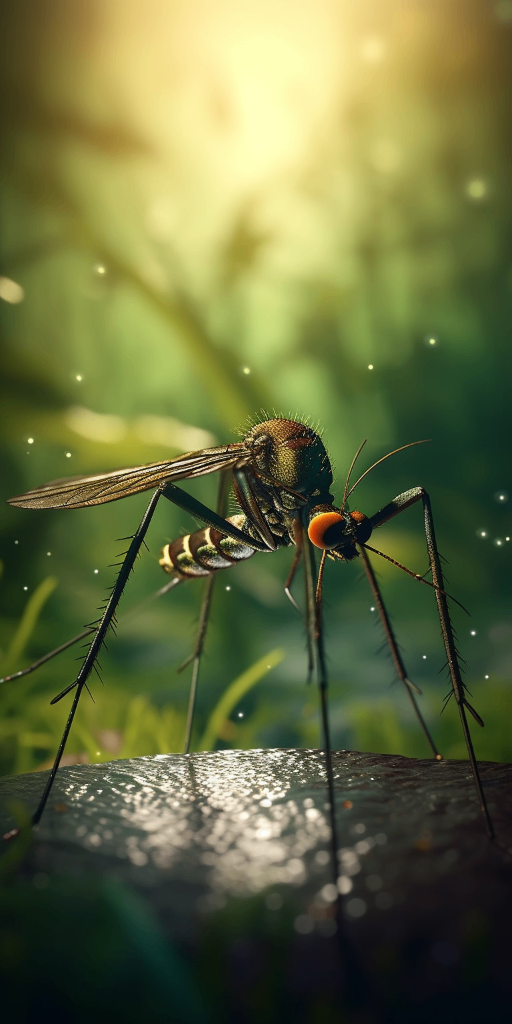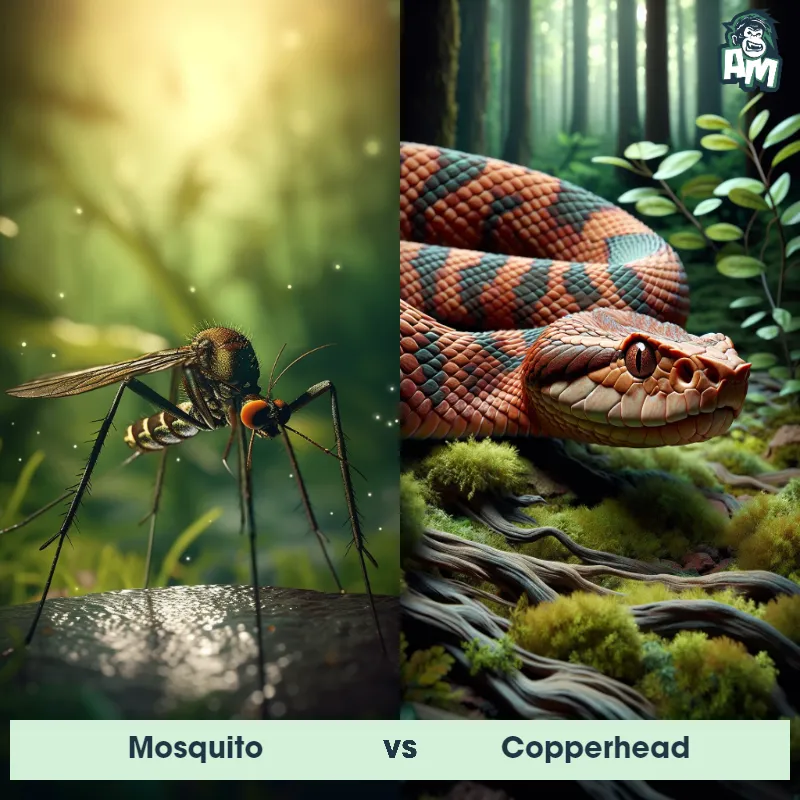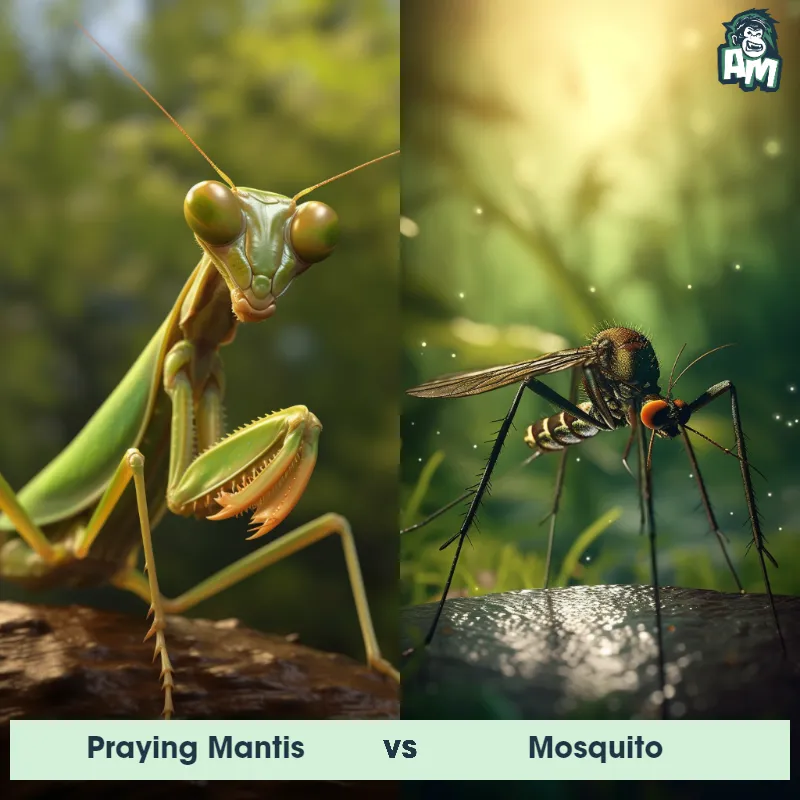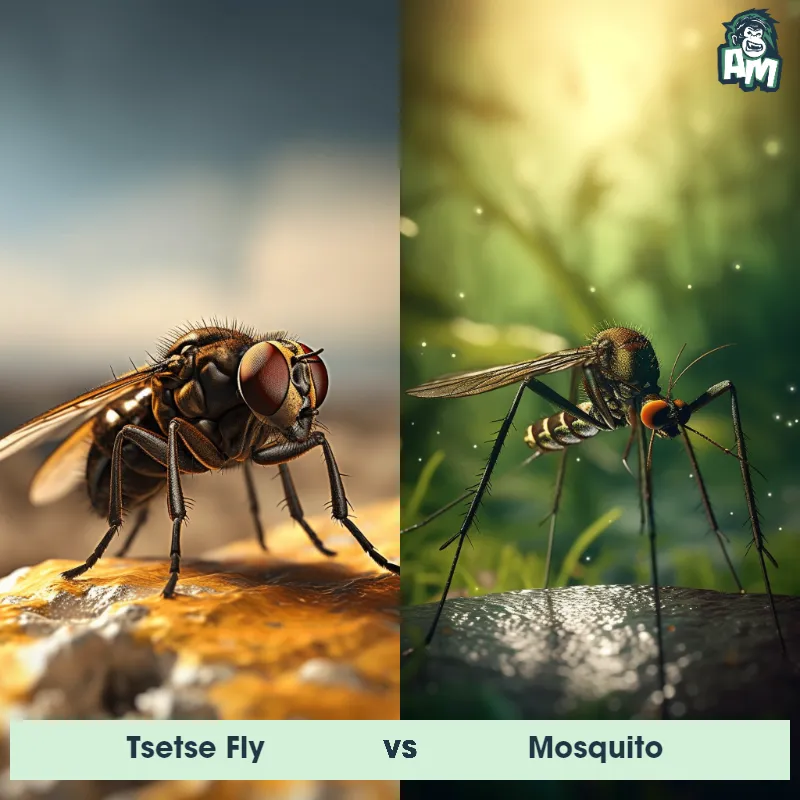The Mosquito
Mosquitoes are small, flying insects belonging to the Culicidae family. These tiny pests are recognizable for their long, thin bodies, narrow wings, and elongated mouthparts called proboscis. They are primarily known for their annoying buzzing sound and their ability to bite animals, including humans, to feed on blood. Mosquitoes are well-adapted to aquatic and terrestrial environments and can be found in various habitats across the globe. There are over 3,500 species of mosquitoes, and females are usually the ones that bite, as they require blood to develop their eggs.

| Mosquito | |
|---|---|
| Size | 0.125-0.75 inches (3-19 mm) |
| Weight | 2.5 milligrams (0.000088 oz) |
| Speed | Speed: 1-1.5 mph (1.6-2.4 km/hr) |
| Key Strength | None |
| Biggest Weakness | Fragile wings |
| Scientific Name | Culicidae |
| Family | Culicidae |
| Habitat | Freshwater and wetland areas |
| Geography | Worldwide |
| Diet | Nectar and plant juices (males), blood (females) |
| Lifespan | 1 day - 2 weeks |

The Mosquito
Mosquitoes are small, flying insects belonging to the Culicidae family. These tiny pests are recognizable for their long, thin bodies, narrow wings, and elongated mouthparts called proboscis. They are primarily known for their annoying buzzing sound and their ability to bite animals, including humans, to feed on blood. Mosquitoes are well-adapted to aquatic and terrestrial environments and can be found in various habitats across the globe. There are over 3,500 species of mosquitoes, and females are usually the ones that bite, as they require blood to develop their eggs.
Fun Fact: Mosquitoes can detect humans and animals from long distances by sensing body heat and the carbon dioxide they exhale since they have specialized receptors for both.
| Mosquito | |
|---|---|
| Size | 0.125-0.75 inches (3-19 mm) |
| Weight | 2.5 milligrams (0.000088 oz) |
| Speed | Speed: 1-1.5 mph (1.6-2.4 km/hr) |
| Key Strength | None |
| Biggest Weakness | Fragile wings |
| Scientific Name | Culicidae |
| Family | Culicidae |
| Habitat | Freshwater and wetland areas |
| Geography | Worldwide |
| Diet | Nectar and plant juices (males), blood (females) |
| Lifespan | 1 day - 2 weeks |
Mosquito Matchups
We use AI to simulate matchups between the Mosquito and other animals. Our simulation considers size, strength, and natural predatory behaviors to determine the most likely outcome.

Can't find the Matchup you want?
Create Your Own MatchupMosquito: Diet, Predators, Aggression, and Defensive Behaviors
What do Mosquitoes eat?
Mosquitoes primarily feed on the blood of animals, including humans. Female mosquitoes require the protein found in blood to develop their eggs, while male mosquitoes primarily feed on plant nectar.
Do Mosquitoes have any predators?
Yes, mosquitoes have several predators in their ecosystems. Some common predators of mosquitoes include dragonflies, birds, bats, frogs, and fish. These predators help control mosquito populations naturally.
Are Mosquitoes aggressive?
Female mosquitoes can be considered aggressive because they actively seek out hosts to feed on blood. They are attracted to their hosts by factors such as body heat, CO2 emissions, and body odors. However, male mosquitoes do not feed on blood and are generally not considered aggressive.
Do Mosquitoes fight?
Mosquitoes do not engage in fights with each other. Their primary focus is on feeding, mating, and reproducing. Since mosquitoes typically have short lifespans, their energy is primarily directed towards these activities.
How do Mosquitoes defend themselves?
Mosquitoes have various ways of defending themselves against threats. They are highly mobile insects capable of quick flight, allowing them to evade predators. Additionally, mosquitoes can detect threats through chemical cues and vibrations in the air, enabling them to take evasive actions.
What is the biggest weakness of Mosquitoes in a fight?
One of the biggest weaknesses of mosquitoes in a fight is their fragility. Their bodies are relatively delicate, making them vulnerable to physical damage. Their small size also limits their ability to defend themselves against larger predators or aggressive hosts. Additionally, mosquitoes are not equipped with any natural weapons for self-defense.
Fun Fact: The sound of a mosquito's buzzing is produced by the rapid flapping of their wings which can vibrate at a frequency of up to 600 wing beats per second.
Fun Fact: Contrary to popular belief, only female mosquitoes feed on blood, while males primarily feed on nectar. The saliva that the female mosquito injects into the skin while biting contains anticoagulants that prevent blood from clotting, which allows them to obtain their meal more efficiently.













